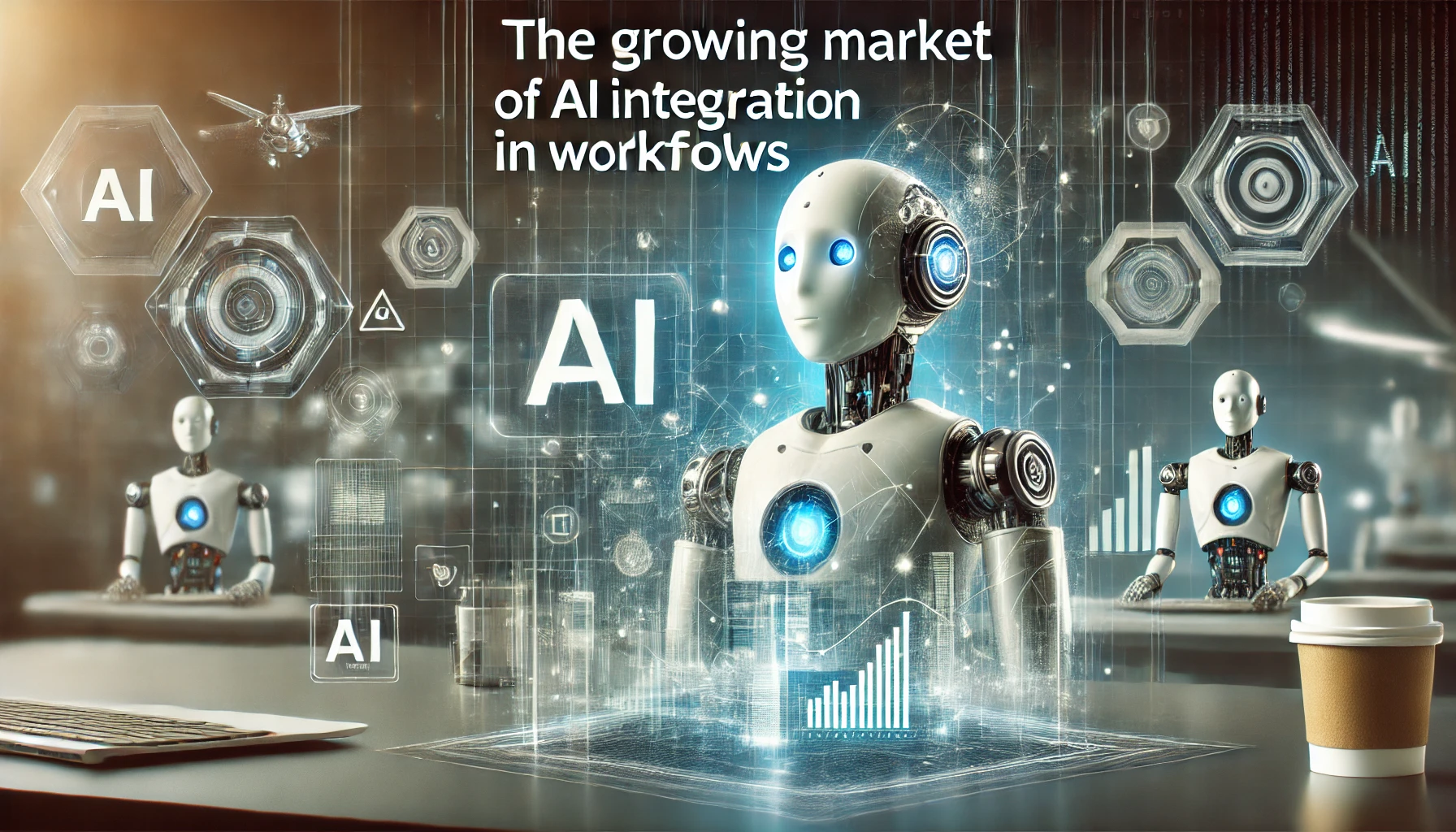The Growing Market of AI Integration in Workflows
2024/03/10
Zack

As we advance into 2024, the integration of artificial intelligence (AI) into business workflows is becoming more widespread and impactful. Recent surveys highlight the increasing adoption and the benefits that companies are experiencing from these technological advancements.
Key Findings from Recent Surveys:
Adoption and Usage:
A McKinsey survey reports that 65% of organizations are now regularly using generative AI, a significant increase from previous years. Businesses are finding substantial value in AI, particularly in human resources, supply chain management, marketing, and sales, with reported cost savings and revenue increases in these areas.
According to Simform’s Executive Generative AI Survey, over 70% of executives regularly incorporate generative AI into their workflows. Popular tools like ChatGPT and Dall-E are widely used for tasks such as content creation and code generation, significantly boosting productivity and efficiency.
Efficiency and Productivity:
HubSpot’s State of AI Report highlights that AI enables marketers to create more content that performs better, with 63% of marketers reporting improved content quality and 83% noting increased content production. Similarly, sales and customer service professionals report enhanced effectiveness and productivity through AI-driven tools.
A survey by Search Engine Journal reveals that 100% of digital agencies are using AI, mainly for content-related tasks. These agencies anticipate increased efficiency and cost savings, although there are concerns about keeping up with the rapid pace of AI innovations.
Challenges and Risks:
Despite the benefits, there are recognized challenges. McKinsey’s research points to risks such as data privacy, intellectual property issues, and the accuracy of AI outputs. Organizations are actively working to mitigate these risks, emphasizing the importance of responsible AI governance. Businesses are also grappling with the integration of AI into existing workflows. Many report the need for a more holistic approach to data management and the incorporation of advanced analytics tools to maximize AI’s potential.
Market Potential and Future Outlook:
The enthusiasm for AI integration is reflected across various sectors. For instance, the clinical trial industry is leveraging AI to enhance efficiency and outcomes, as reported by Business Wire. This sector anticipates significant advancements in productivity through the adoption of AI and machine learning technologies.
As companies continue to explore and implement AI solutions, the focus is shifting towards achieving a balance between innovation and practical application. The goal is to ensure that AI not only drives operational efficiency but also contributes to strategic growth and competitiveness.
For businesses considering AI integration, the message is clear: AI is no longer a futuristic concept but a present-day imperative that offers tangible benefits. However, successful implementation requires careful planning, risk management, and continuous evaluation to fully realize its potential.
By staying informed and proactive, companies can harness the power of AI to transform their workflows, drive efficiency, and achieve sustainable growth in an increasingly digital world.
References
-
McKinsey & Company. (2024). The state of AI in early 2024: Gen AI adoption spikes and starts to generate value. Retrieved from McKinsey
-
Simform. (2024). The Executive Survey 2024 on the Strategic Integration of Generative AI in Organizations. Retrieved from Simform
-
HubSpot Blog. (2023). The State of AI in 2023 Report: Key Findings from 1300+ Business Professionals. Retrieved from HubSpot
-
Search Engine Journal. (2023). Survey Reveals 100% of Digital Agencies Are Using AI. Retrieved from Search Engine Journal
-
Business Wire. (2024). New Research Reveals Status of AI/ML Adoption Amid Surging Interest for Clinical Trial Leaders in 2024. Retrieved from Business Wire